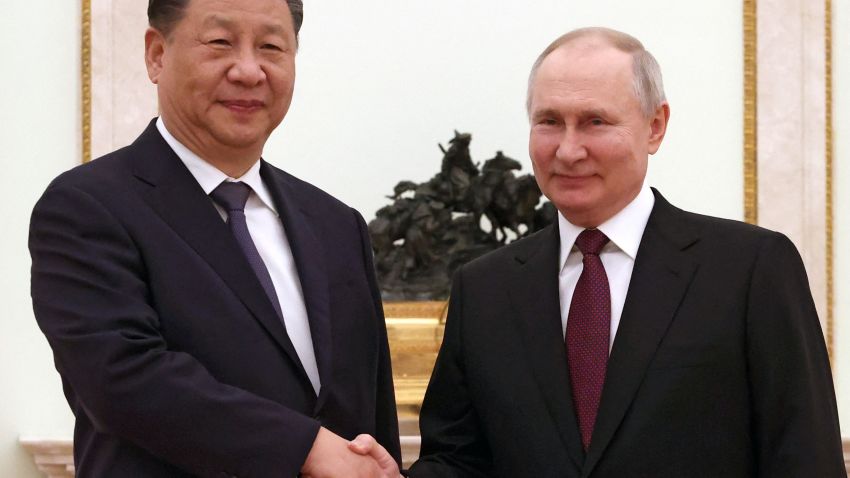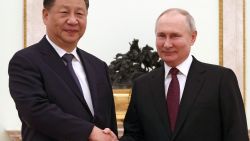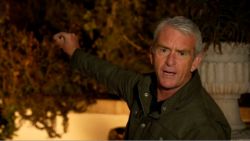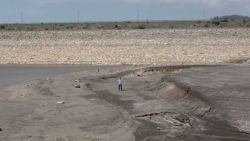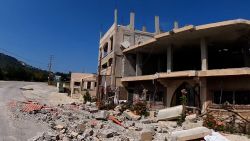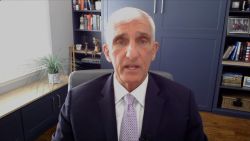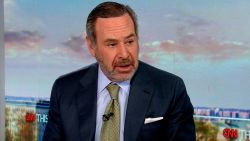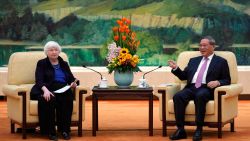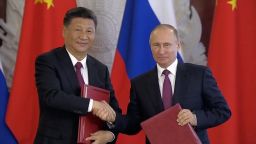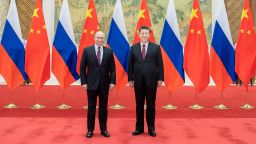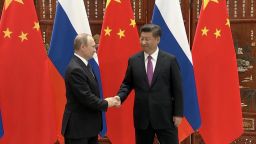Xi Jinping and Vladimir Putin have met at the Kremlin and touted the close ties and strategic visions shared by China and Russia, on the first day of a state visit framed by Beijing as a peacemaking project despite deep skepticism in Kyiv and the West.
It is the Chinese leader’s first visit to Russia since Moscow launched its unprovoked invasion of Ukraine last year, coming just days after the International Criminal Court in the Hague accused the Russian president of committing war crimes in Ukraine and issued a warrant for his arrest.
The war in Ukraine was raised in the first hours of their meeting, and is expected to be a key point of discussion throughout Xi’s visit, which will be closely watched for any potential impact on an entrenched conflict that has killed tens of thousands and triggered a mass humanitarian crisis.
Talks between the two leaders lasted four and a half hours on Monday, according to Russian state news agency RIA Novosti. Further formal meetings are expected to follow on Tuesday..
“In the last few years, China has made a colossal leap forward,” Putin told Xi, sitting side by side with him at the Kremlin on Monday afternoon. “In the whole world, this evokes interest, and unfortunately even envy.”
Xi, who called Putin his “dear friend,” praised his Russian counterpart in turn, saying the country’s development had “significantly improved.”
“Both sides exchanged in-depth views on the Ukraine issue,” reported Chinese state news agency Xinhua later in the day, describing the leaders’ meeting as “in-depth and candid.”
China has billed the trip a “journey of friendship, cooperation and peace,” amid a push from Beijing to frame itself as a key proponent for the resolution of the Ukraine conflict. But Xi’s trip is likely to be seen in some Western capitals as a ringing endorsement of the Russian leader in the face of broad international condemnation of his war.
Top US diplomat Antony Blinken said the visit showed China’s intent to provide “diplomatic cover” for alleged Russian atrocities in Ukraine.
“That President Xi is traveling to Russia days after the International Criminal Court issued an arrest warrant for President Putin suggests that China feels no responsibility to hold the Kremlin accountable for the atrocities committed in Ukraine, and instead of even condemning them, it would rather provide diplomatic cover for Russia to continue to commit those very crimes,” said Blinken at a news conference at the US State Department on the release of the 2022 Human Rights Report.
Putin once again claimed to Xi that he is “always open to the negotiation process” during a publicized portion of Monday’s meeting, despite his repeated refusal to engage with Kyiv on a withdrawal from Ukrainian land.
“We studied closely your proposals on the settlement on the acute crisis in Ukraine,” Putin told Xi.
“Of course, we will have an opportunity to discuss this issue. We know that you are based on the principles of justice and commitment to the fundamental points of international law,” Putin said. “We will certainly discuss all these issues, including your initiative.”
Western leaders have expressed skepticism about China’s potential role as a peacemaker and its claimed neutrality. The United States and its allies have instead since last month warned that China is considering sending lethal aid to Russia for its war effort, which Beijing has denied.
Kyiv is also expected to be closely watching the proceedings, and reiterated on Monday that any plan for peace must start with a Russian exit from its territory.
“We expect Beijing to use its influence on Moscow to make it put an end to the aggressive war against Ukraine,” Ukrainian Foreign Ministry spokesman Oleg Nikolenko told CNN Monday.
“Restoring territorial integrity of Ukraine should be at the core of every diplomatic effort,” he said. “We stand ready to engage in a closer dialogue with China in order to restore peace in Ukraine in accordance with the principles enshrined in the UN Charter, and the latest UNGA resolution on this matter.”
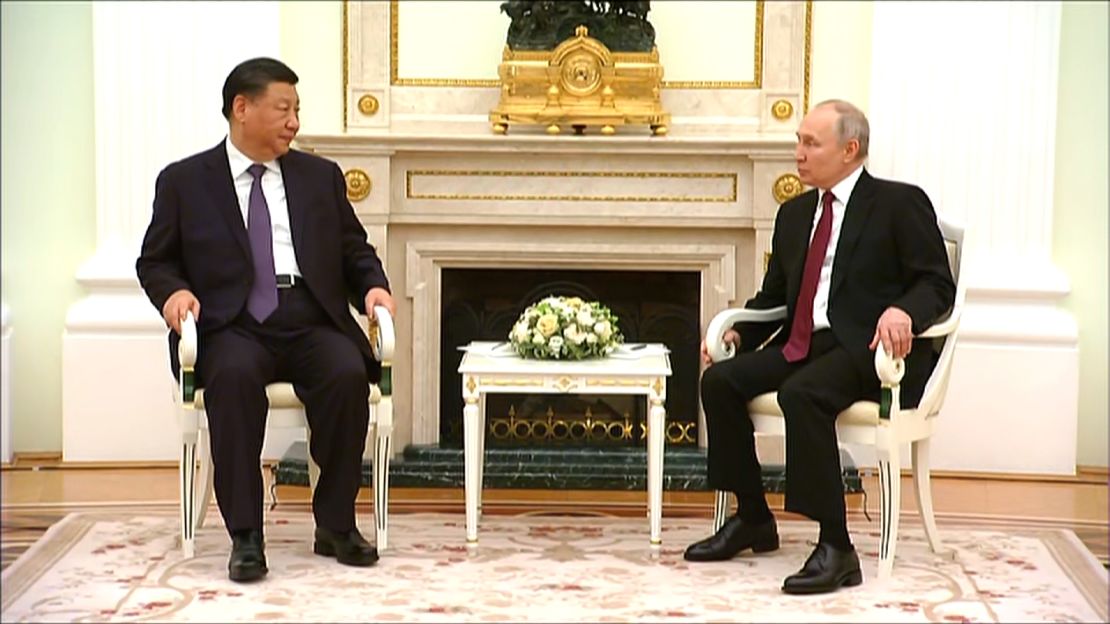
On the table
Xi’s visit comes days after the ICC essentially made Putin a wanted man in the 123 countries that recognize the court, deepening the Russian leader’s isolation from the West as he continues a bloody and costly war in Ukraine.
The Chinese leader was greeted on his arrival at Vnukovo airport near Moscow by Dmitry Chernyshenko, one of Russia’s 10 deputy prime ministers, and a Russian military band, but Putin himself was not present for the meet-and-greet.
Russian media later showed Xi’s motorcade driving through the city.
China has recently sought to revamp its image, positing itself as an advocate for peace and defending its relationship with Russia as good for global stability. Last month, Beijing released a vaguely worded position paper on the “political solution” to the conflict in Ukraine.
On Friday following the announcement of Xi’s Moscow trip, the White House expressed concerns about potential proposals from China that would be “one-sided and reflect only the Russian perspective.”
For example, a proposal for a ceasefire – which China has repeatedly called for – might merely provide a way for Russia to regroup before launching a reprisal, said John Kirby, spokesman for the National Security Council.
On Monday, after Xi arrived in Moscow, US Secretary of State Blinken said that “elements” of China’s peace proposal for the war were in line with efforts Washington would support.
“China’s proposal includes elements that we have long supported, including ensuring nuclear safety, resolving the humanitarian crisis, protecting civilians and, indeed, the first element calls for upholding sovereignty, independence and territorial integrity of all counties,” said Blinken.
But he said any calls for a ceasefire “that does not include the removal of Russian forces from Ukrainian territory would effectively be supporting the ratification of Russian conquest” as it would “allow President Putin to rest and refit his troops, and then restart the war at a time more advantageous to Russia.”
“The world should not be fooled by any tactical move by Russia, supported by China or any other country, to freeze the war on its own terms,” said Blinken.
Xi must tread carefully
The visit is expected to provide a platform for the two countries to further deepen their close strategic alignment, which spans diplomatic coordination, joint military training and robust trade.
In a statement released after Xi landed on Monday, the Chinese leader said: “In the face of a turbulent and changing world, China is willing to continue to work with Russia to firmly safeguard the international order.”
Putin and Xi both touted the “new impetus” their meeting would bring to their bilateral relationship in separate letters published in each other’s national state-run media outlets ahead of the visit.
Both also used the letters to decry “hegemony” – an allusion to their shared aim of pushing back against what they see as a US-led world order.
Xi will need to tread carefully during his visit to Moscow. At stake for the Chinese leader is whether he can both bolster ties with a partner China sees as crucial to countering that perceived US dominance, while not alienating a Europe that has become increasingly wary of the China-Russia rapport.
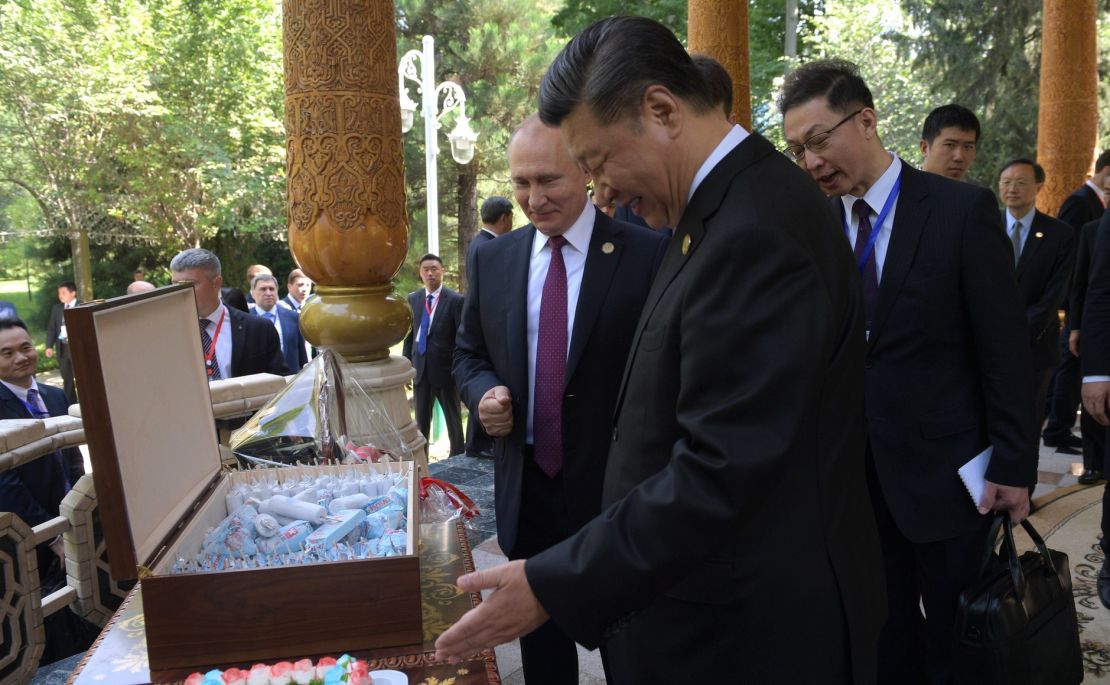
Putin launched his invasion days after he and Xi declared a “no limits” partnership last February.
Since that time China has claimed neutrality, but backed Kremlin rhetoric blaming NATO for the conflict, refused to condemn the invasion, and continued to support Moscow financially by significantly increasing purchases of Russian fuel.
Ukrainian President Volodymyr Zelensky has in the past publicly expressed an interest in speaking with Xi about the conflict, though communication between the two countries has not reached higher than Ukraine’s ministerial level since the war began.
Ukrainian, Chinese and US officials all declined last week to confirm a potential virtual meeting between Zelensky and Xi, following a Wall Street Journal report that the two were planning to speak for the first time after Xi’s then-potential Moscow trip.
Close rapport
In contrast, this week’s state visit marks the 40th meeting between Putin and Xi since the Chinese leader came to power in 2012.
The personal chemistry between the two authoritarian leaders is widely seen as a key driver of tightening ties between the countries in recent years – and will also be closely scrutinized during the visit.
Past meetings between the leaders have put that rapport on full display, with photo-ops including Putin presenting Xi with ice cream on his 66th birthday during a 2019 meeting in Tajikistan, and the two cooking Russian pancakes together on the sidelines of a forum in Vladivostok in 2018.
The two last met in person in September during a Shanghai Cooperation Organization summit, part of Xi’s first overseas trip following nearly three years without travel during the pandemic.
CNN’s Anna Chernova, Michael Conte and Kylie Atwood contributed reporting

